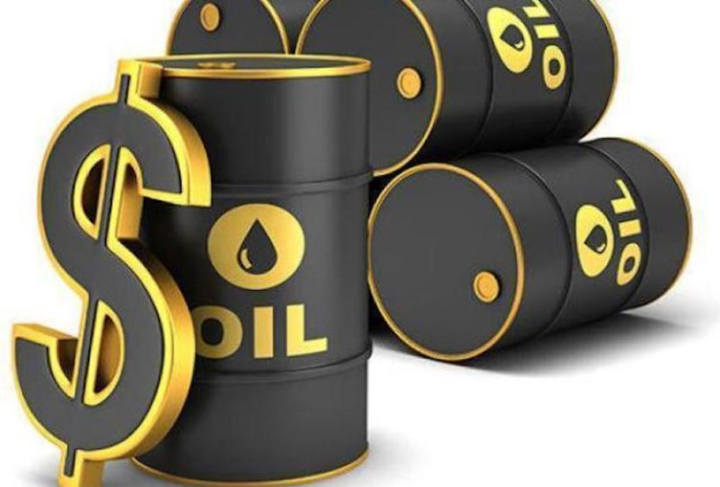The Federal Government has disclosed that Nigeria’s domestic refineries received a total of 67.6 million barrels of crude oil within the past year, underscoring ongoing efforts to strengthen local refining capacity and reduce reliance on imported petroleum products. The figure reflects both state-owned and private refinery allocations as the government intensifies its push to achieve energy security and stabilize fuel supply in the country.
According to officials, the allocation marks a significant milestone in Nigeria’s quest to reposition its oil and gas sector. The government explained that ensuring adequate crude supply to refineries, including the state-run plants and new private facilities such as the Dangote Refinery and modular refineries, remains central to its energy policy. The move is aimed at cutting the billions of dollars spent annually on fuel imports while also safeguarding jobs and stimulating industrial growth.

Data from the Nigerian Upstream Petroleum Regulatory Commission (NUPRC) indicates that this volume was shared among operational refineries under the domestic crude supply obligation. The Commission emphasized that the policy ensures that refineries have access to feedstock locally instead of depending on international market arrangements. This, it said, helps create stability in pricing and secures availability of products for Nigerians.
The Federal Government noted that the 67.6 million barrels supplied also highlight its determination to enforce the Petroleum Industry Act (PIA), which mandates that producers make a portion of their crude available for domestic refining before exports. Officials stressed that this allocation not only meets immediate domestic needs but also aligns with the broader agenda of making Nigeria a net exporter of refined petroleum products in the near future.
Energy experts argue that the crude supply milestone signals a turning point for the country’s refining landscape. For decades, Nigeria’s dependence on imported refined products drained foreign exchange and exposed the economy to global market volatility. With sustained supply to local refineries, analysts believe that the country can gradually shift toward self-sufficiency, reduce subsidy burdens, and strengthen its balance of payments.
The government also disclosed that it is working with private players to expand refining capacity further, particularly through modular refineries across the Niger Delta. This is expected to not only increase domestic output of petrol, diesel, and aviation fuel but also reduce illegal refining activities that have long posed environmental and security challenges.
The Dangote Refinery, which has begun phased operations, is among the key beneficiaries of the domestic crude supply drive. With its massive refining capacity, the plant is projected to significantly alter Nigeria’s energy landscape by meeting most of the country’s fuel needs and eventually exporting surplus products. The government reaffirmed its commitment to ensuring that crude supply to such facilities remains uninterrupted.
However, some stakeholders have raised concerns about transparency in crude allocation and pricing models for local refineries. Civil society groups have called for more disclosure on how volumes are distributed among operators and at what terms, to avoid distortions and ensure fairness. They argue that transparency will build public trust and assure Nigerians that the policy truly serves national interest rather than benefiting a select few.
The Federal Government, responding to these concerns, stated that monitoring frameworks are in place to track allocations and utilization. It maintained that accountability remains a key pillar of its energy reforms, and that all stakeholders, including operators and regulators, are expected to comply with reporting standards.
In the broader context, the crude supply to domestic refineries is expected to positively impact fuel availability, pricing stability, and economic performance. By keeping more of the value chain within Nigeria, the country could see a reduction in foreign exchange demand for imports, an improvement in energy security, and new opportunities for industrial development linked to petrochemicals and downstream industries.
As the government continues to implement reforms in line with the PIA, the success of the domestic crude supply scheme will be critical to sustaining public confidence. Observers note that consistent crude allocation, coupled with effective oversight, will determine whether the 67.6 million barrels supplied translate into affordable and reliable fuel for Nigerians.
Ultimately, officials insist that the milestone reflects a strong commitment to transforming Nigeria from a crude-export-dependent economy into one where refining and value addition take center stage. With continued investment, stronger regulatory oversight, and steady supply to refineries, Nigeria could be on the path to finally resolving its decades-long fuel crisis and positioning itself as a refining hub in Africa.
Support InfoStride News' Credible Journalism: Only credible journalism can guarantee a fair, accountable and transparent society, including democracy and government. It involves a lot of efforts and money. We need your support. Click here to Donate
